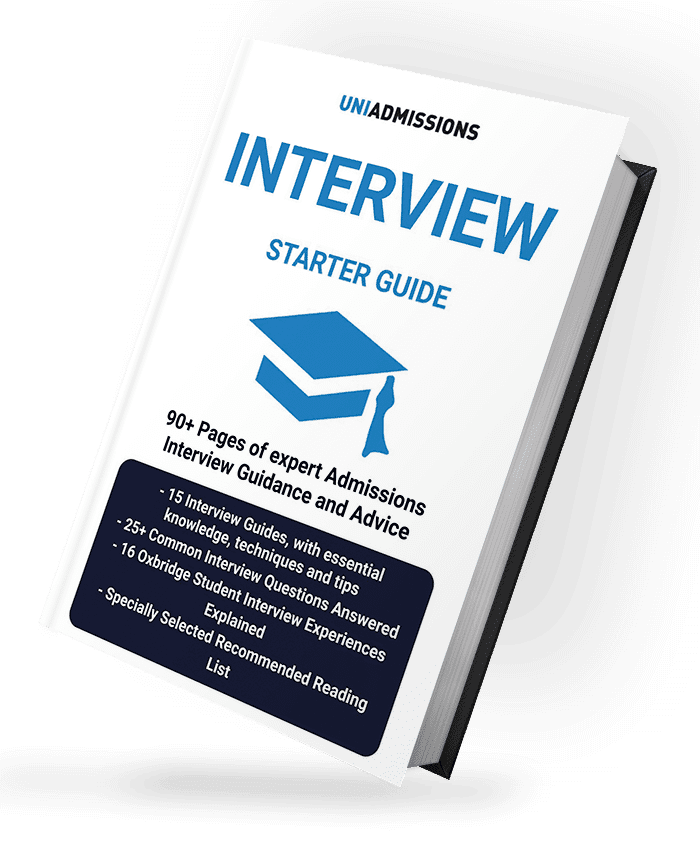Heading into the Cambridge Law Interview means venturing into the unknown. Knowing what the experience is like will help you in preparing for it.
My name is Brendan and I write this article in my current capacity as a Cambridge third-year and member of Hughes Hall. The purpose of writing this is to give you a brief insight into my Interview experience.
While my experience is by definition personal to me, I believe it would help to unveil the mysterious ‘initiation process’ that many students undertake, but not all make through. I endeavour to write and provide information such that the latter outcome will not be the case for readers of this article.
What Is The Cambridge Law Interview?
The Cambridge Law Interview is an Interview or series of Interviews undertaken by the University of Cambridge as part of the application process for the Law degree. Prior to the pandemic, all applicants would either travel to their college in Cambridge itself for the Interview while in some countries, such as Malaysia, Singapore and Hong Kong to name a few, have an ‘overseas Interview scheme’ whereby an academic will travel to the respective country to conduct the Interview.
When these two alternative arrangements were in place, the overseas Interview was notably shorter than the on-site one. The candidates sat a half an hour Interview with one interviewer – who is usually an academic in the subject who may or may not be a member of the college of your choice. For domestic students, it consists of two sets of Interviews in front of a panel of Law academics.
Such was the case in Hughes Hall, where the Law Director of Studies (or DoSes) from Year 1 to Year 3 and LLM conducted the Interview.
Since the pandemic, both alternatives have merged into an online option increasingly delegated from the ‘overseas Interview scheme’ to the colleges. Yet, despite the change in form, readers should not be worried, as the Cambridge Interview at its very core remains the same, a search for students of academic potential.
My Interview Part 1: Before
When I first received the email with those daunting yet exciting words that I had been invited to the Interview, I did not think I was one of those students with academic potential. I knew that preparation was key, but I rarely went for Interviews, and most Interviews were for short term internships rather than a degree. My first step of preparation was talking to seniors who faced the Cambridge Interview themselves.
It is through discussion with these seniors that I learnt that some legal knowledge can be asked of you, and though it was not a requirement to have it, having it in your toolkit helps immensely. I was fortunate enough to take Law as an A-level subject, and it helped me display my analytical skills in some of the questions I was asked, but this is by no means a prerequisite, as prospective Cambridge applicants have read law books aimed at the aspiring contemplator of justice and have done so in their Interviews.
In my experience talking to other successful candidates, Allan Hutchinson’s “Is Eating People Wrong?” and Michael Sandel’s “Justice: What’s the Right Thing to Do?” are popular favourites in their reading list.
While substantive knowledge is crucial, it is important that preparation does not forget the bland yet trial-and-tested method that is rehearsal. Practice in front of an academic councillor, Cambridge student or at the very least a friend. Don’t be shy. It is important that your mock interviewer puts you on the spot – I did so for a mock interviewee of mine who got into Murray Edwards.
This is because being questioned and made to digest and link ideas on the spot is part and parcel of the Cambridge Law learning process, and upon entry into the programme it will seem second nature. An important caveat follows this, that you practice this Interview unlike any other Interview you had, but like a Cambridge supervision.
A bonus point on Interview preparation is to read up on your interviewer, of whom identity you will be informed of before then. This is helpful if you share a similar area of interest (or would like to steer of certain topics of disinterest which he may have an interest in!). It may also give you some useful material to ask them if they invite you to ask any questions.
Some brief but obvious administrative points, be aware of the timing and venue of the Interview. Visit the venue beforehand at least once!
Starting your Interview preparation as early as possible will put you on course for a successful Cambridge Law Interview.
If you wait until you get an invitation for the Interview to start preparing it will already be too late.
Discover our Oxbridge Law Premium Programme by clicking the button below to enrol and triple your chances of success.
My Interview Part 2: During
I walked out the elevator – that only stopped at even floors for some reason – to the highest floor of the building where I was faced with a row of students clad in formal black attire, ready to display their potential.
Like most interviewees, I strove to maintain a calm outward demeanour despite having a whirlwind of thoughts on the inside. When it was my turn, I stepped into the room to meet my interviewer, Dr Martin Steinfeld, who would soon accept me into his college and be my Director of Studies.

The Interview started out rather dauntingly. I remember trying to shine some of my strong points in my Personal Statement, like how I had written a piece I was very proud of, only to be dismissed rather quickly, with Martin (as I now address him) showing disinterest. The rough start cast my mind back to something I read about the Interview, answer the questions they asked and be prepared to think on the spot.
The questions I were asked were more knowledge-based than aptitude. The typical “Why do you want to do Law?” question made no appearance, and in its stead was a customised problem question to do with a blind man and his distracted caretaker walking along a slippery airport floor with a mere “Caution: Wet Floor” display sign, with the blind man injuring himself and a question arising as to which party is liable – the distracted caretaker or the ignorant-to-the-needs-of-blind-people airport.
This was a challenging but apt task, as most of the written coursework I do now in Cambridge concerns such alterations of factual permutations. I remember answering this with my knowledge of Tort Law from A-Levels, particularly to do with breach of duty of care and contributory negligence, to deal with this question, but I was also asked questions that were meant to provoke more legal thinking.
For example, I remember being asked a point about whether I had a legal duty to help a blind man cross the street, a question that was probably prompted by some musings of morality I had uttered that had to do with how much more careful people should be towards blind people.
Besides this scenario question, I was heavily pressed on my UCAS Personal Statement, but not the good parts. Rather, I was pressed on any logical gaps or vagueness in my Personal Statements. I spoke about the ‘historical origins of law’ in my Personal Statement and was asked for a concrete example of it.
I remember this question clearly because I was stuck for a bit but then looked out the window to see council parking lots below, and proceeded then to make a distinction between law created for societal functioning without any moral basis, like the Law that you should not park on the parking delineation, versus a law with a moral basis like the law that criminalises theft.
It is still humorous to think looking out the window at a car park got me out of the brain fog.
Download our FREE 90-Page Interview Starter Guide
Our 90-page E-Book is filled with expert Interview Advice, common interview questions and first-hand interview experiences from successful Oxbridge applicants.
To access all this for free, just enter your name and email address and you’ll be sent the guide directly to your inbox.

My Interview Part 3: After
I thanked Martin for his time and told him I really enjoyed the Interview. I like to think he did too since he said “Unfortunately, our time is up!”, but he could just have been being polite. I went for a nice hot meal after the Interview – and yes, this should be taken as part of my advice as well.
Upon acceptance into Hughes Hall, the college Martin was a fellow of, he sat me down in our first Director of Studies meeting eight months later telling me what I could have done better in my Interview – which, despite the delay, puts me in the best position to reflect, to say the least! Martin pointed out that I did not spot some issues in the constitutional law realm but kept my analysis confined to private law.
In hindsight, I would have read more widely, and been aware of how my A-Level syllabus could act as a straitjacket to what I thought Law was about. Some other things I could have done better was to let the interviewer direct the Interview, instead of fighting to show the sides of me that I thought were good as I had done.
Concluding Thoughts
Looking back on my Interview which seemed like ages ago as a third year, having survived through almost two years of pandemic-affected learning, the Interview remains one of the most cherished memories, which I fondly speak of to friends in social gatherings – and believe it or not – parties!
Once the Interview is done, pat yourself on the back and do not overthink. Most of you are likely to be passionate lawyers who have done some background research, and with that would be able to do your best. And hey even if you do not, the Cambridge Law Interview always makes for a good party conversation!
Wider reading is of the utmost importance in the Cambridge Law Interview. Our suggested reading list will see you stand out from the crowd.
Everyone attending an Interview will likely be reading the same books. You do not want to be discussing something numerous people already have. Our reading list provides you with an exhaustive range of books that most people will not be reading.
We have expert tutors on hand to help you in your preparation for the Cambridge Law Interview. They will teach you how to Interview effectively and successfully.
Discover our Oxbridge Law Premium Programme by clicking the button below to enrol and triple your chances of success.

